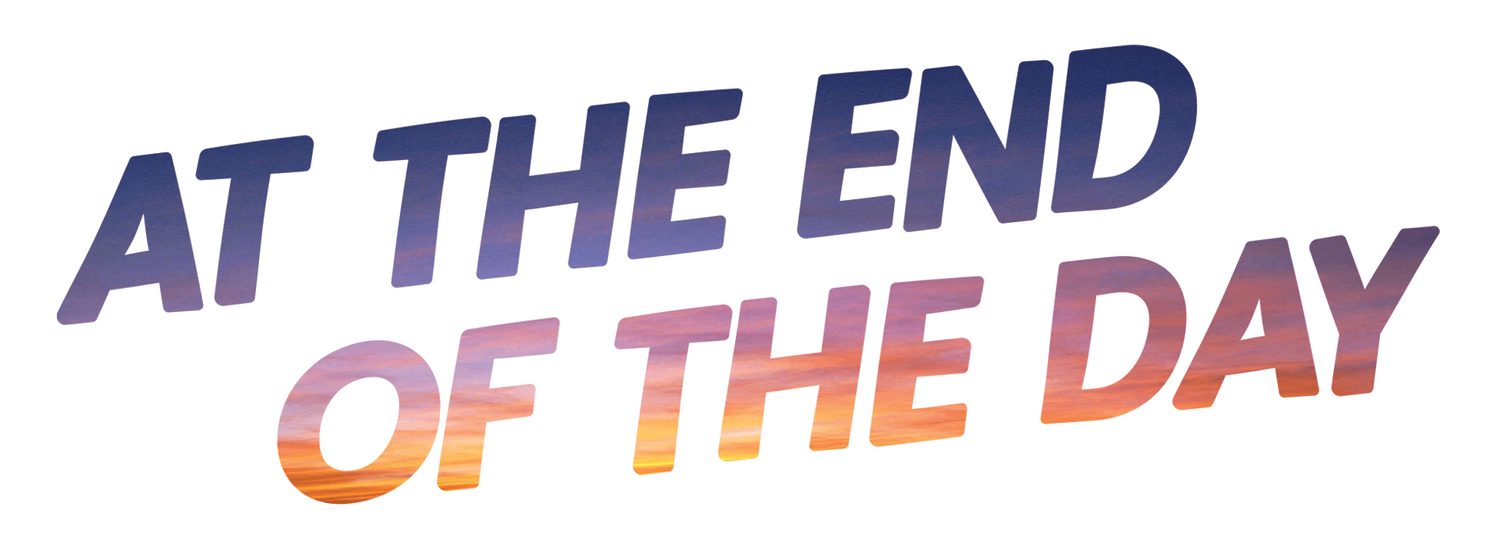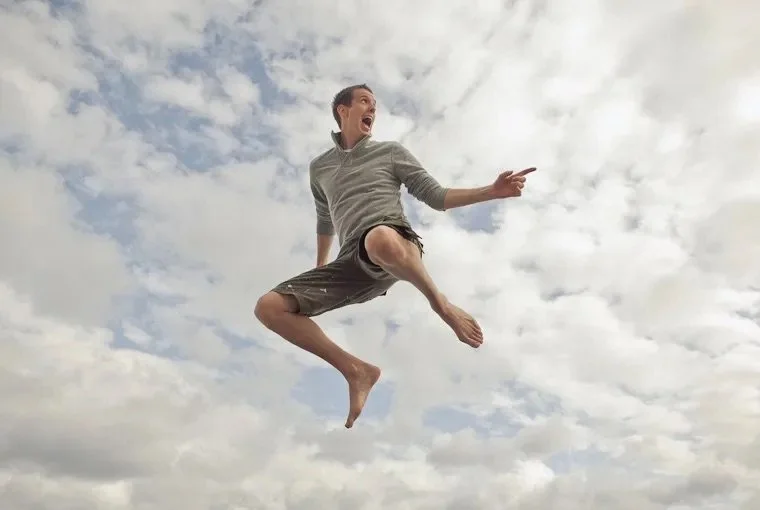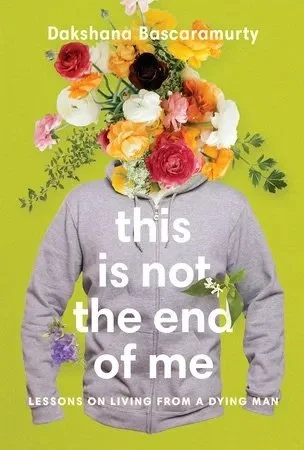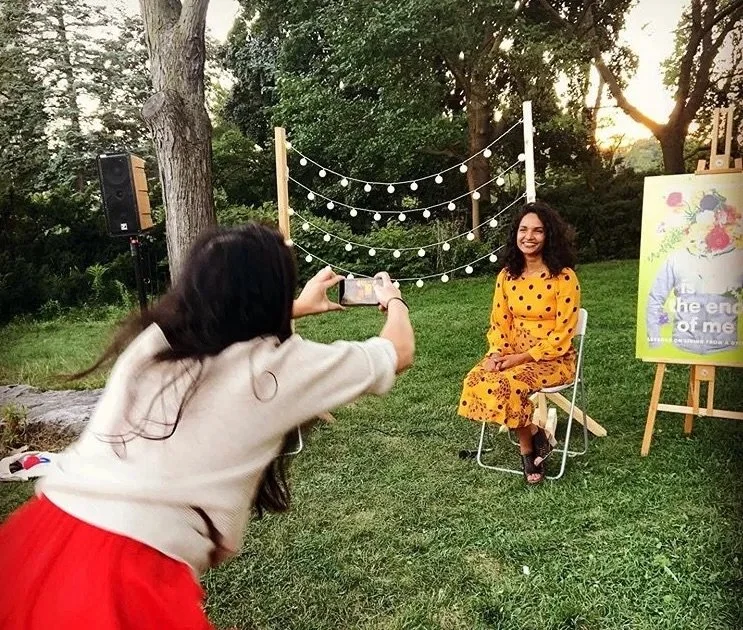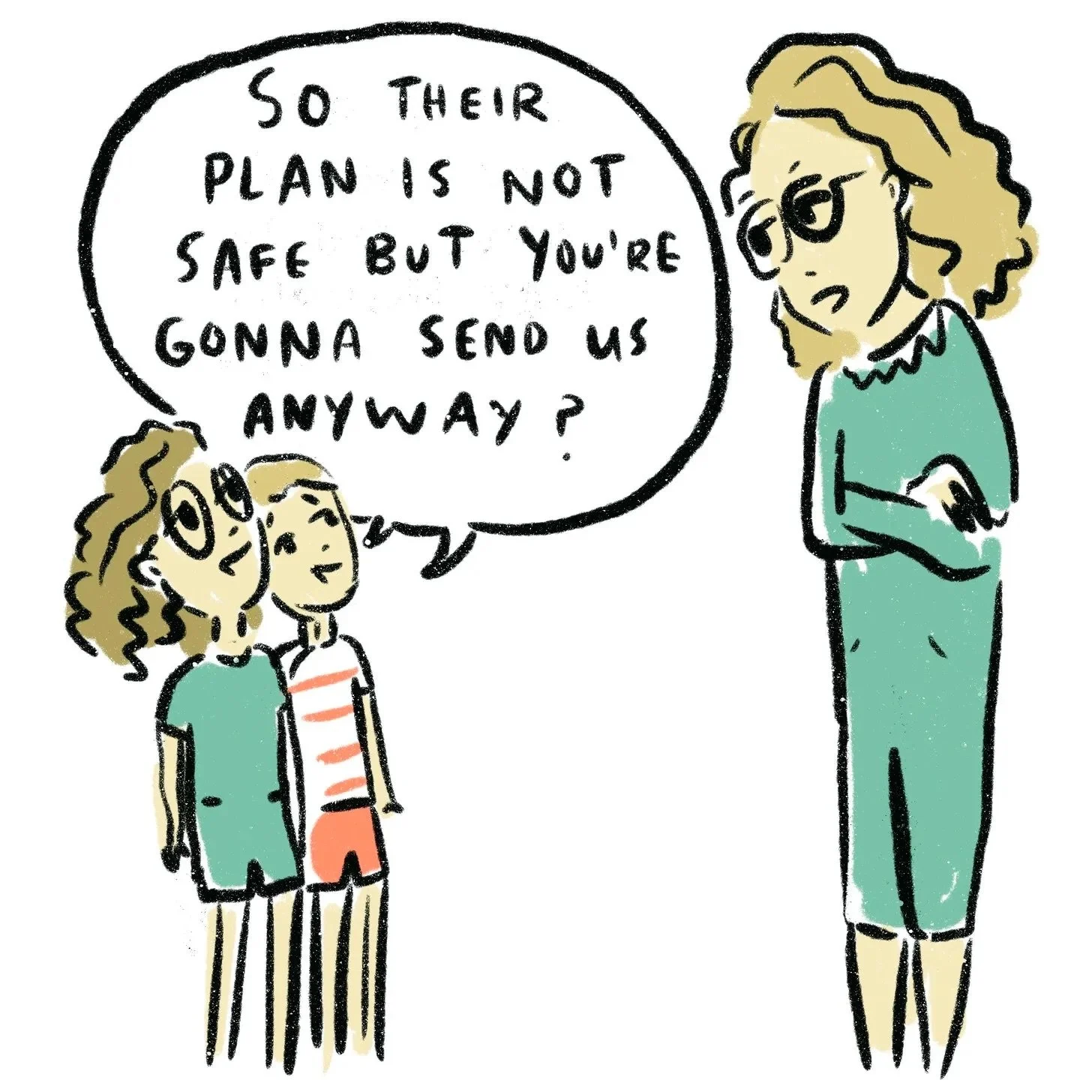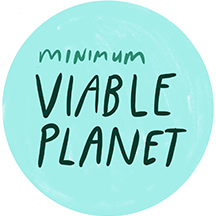How to live when you know you'll die
On legacy, love and the daily details
Hi! Thank you for reading At The End Of The Day, a newsletter I write to help process the news. I’m Hannah Sung. Subscribe to get weekly ATEOD letters in your inbox. It’s about reflecting on what matters most at the end of the day. If you like what you’re reading, why not share this with a friend?
This week, I’m celebrating life. I’m spending a lot of time with family while the sun is shining. Eating dinner on the beach, standing knee-deep in bracing, cold water with a burger in one hand and beer in the other, as my kids sit on shore chanting (roasting me is their latest thing and I love it). They’re just so happy to be with a mom who’s off the clock. Sleeping in a tent. Waking up to a raven call. That’s the mood. Soaking in these moments while they’re possible.
I’m also trying to get deep into books to take a mental break from anxiety and the churn of daily news.
Today’s ATEOD letter is about a book called This Is Not the End of Me: Lessons On Living From A Dying Man.
Layton Reid turned to alternative therapy after being diagnosed with cancer
This Is Not the End of Me is the raw, intimate story of a man, Layton Reid, and his family. Layton was in his early 30s when he received a terminal cancer diagnosis, mere months before the arrival of his first child. It’s a beautifully-written book by a dear friend of mine, Dakshana Bascaramurty.
Dakshana met Layton in Halifax when she hired him to be her wedding photographer in 2011. A year later, she learned about his diagnosis.
This book will resonate with those who have gone through the experience of loss. But it also feels that Layton’s family’s story is relatable to all of us as we go through this pandemic, a time when daily decisions seem loaded with life-and-death details.
Many of us are mourning the life we thought we would be living this summer, or next year, as the virus continually redirects the way our lives unfold, whether plans were paid-for or still just a wisp of an unspoken fantasy.
I found reading this book to be:
An opportunity to ugly-cry
A reminder that humans will go to great lengths for each other
A chance to marvel at the professional skill of a friend with whom my discussion is at least 75% memes and other dumb stuff (but dumb stuff of the highest order because I laugh pretty much every time). It’s always so nice to see your friend in their element. And Dakshana can write.
We became friends when we worked together at the Globe and Mail, where Dakshana continues to be a reporter. I hope you have a friend like her in your own life. Being around her is like the feeling when you snap on a crisp, bright light. She’s funny, sharp and unafraid of going places people don’t normally talk about in polite company. Layton’s story is all of these things.
Layton traveled the world. But the story of his legacy and love is mostly told from within the four walls of his home in Halifax, at home with his wife Candace and son, Finn. The homebound nature of it doesn’t make his story any smaller. No house can contain the energy this book reminds us we all have within.
Read below for a Q&A with Dakshana on what she learned by writing the book.
An outdoors, pandemic-summer book launch. Dakshana Bascaramurty (right) gets her photo taken by Jennifer Yang. Photo credit: Sarah Boesveld
ATEOD: As a journalist, you meet many people and you hear so many interesting stories. Why did you choose Layton’s family to write about in a book?
DB: I never went into this thinking I would spend years on it. I thought it was going to be a magazine story that I wrote about a guy who’d been given this terminal diagnosis when he was just about to become a father and in this wild bid to stay alive, had turned to pretty out-there alternative therapy.
But it was one of those things where I just kept writing and reporting. He was such a magnetic person and his family were so unusually, maybe even suspiciously, open with me [laughs] that I was like, I need to keep at this and we'll see where it goes.
ATEOD: He became your friend, right?
DB: Yeah, Layton became a really, really close friend. On my wedding day, I spent more time with him, technically, than I spent with anybody else, including my husband. And we just really hit it off. After, we went our separate ways. He lived in Halifax, I lived in Toronto.
There were so many bittersweet parts to our lives connecting again later. It was the fact that he was dying that we became friends again. The position I had as a journalist expedited that friendship in this unexpected way because he needed someone that he could be honest and open and vulnerable with in a way that he couldn't really with the people that were in his life. His wife, his son, and his parents -- they were all on this mission to keep him alive, and he had to be positive for them.
ATEOD: He was pretty obsessive about documentation. Tell me about that.
DB: Okay, so the thing that was so annoying about Layton is he was an incredibly gifted photographer but also an incredibly gifted writer. And the book is filled with excerpts of his writing --
ATEOD: Why is that annoying that he's gifted at writing?
DB: It's annoying because he wasn’t coming to me saying, “Hey, I want you to write a story about me.” It was him saying, “I'm doing this crazy thing to stay alive and my son was just born and you're a writer -- can you give me tips?” But I find it very irritating because he didn't need me at all. His own writing could be this emotional gut punch, and it’s so sharp and funny. And I don't know, I just hate people who are like, talented at creative expression in multiple areas [laughs].
ATEOD: Writing a book about death must be heavy. It's also a very weird time right now with COVID-19 this year. What does it feel like to give this book to the world now?
DB: The big takeaway for me, is that once Layton accepted his fate, his life really seemed to slow down. If he was here, he'd be rolling his eyes so hard as I say this, but he really did that whole, OK, let me just see what today is like. Let me live for today and maybe tomorrow, but not much further than that.
After he found out that he had tumours in his brain and he was like, “Alright, I'm done with this alternative therapy, I'm just going to live what little life I have left,” he would describe what eating food was like, that he had denied himself. And it was like, an emotional experience. There were so many things that were mundane that he just derived so much joy and pleasure from.
I think slowing down your life, appreciating what may seem tiny, could be a very fulfilling exercise, especially now, when we feel like we are being denied so much.
ATEOD: How has this book changed you?
DB: It is so strange. When I met Layton, I was 25 years old. And I'm 34 now. When I was writing the first draft of this book, I was 10 weeks pregnant. All the interviews I’d done with Layton about parenthood, I was reading those and starting to think about this tiny being I was growing in my body. And Layton was the first very close person in my life that I lost, and that loss happened around the same time that my dad got very sick. Layton was one of the people in my life who I felt I could speak to openly about the fears I had about my dad getting sick. My dad had a neurological condition very similar to Parkinson’s.
I had to make the difficult decision in my family to put my dad in a long-term care centre. He died from COVID-19 in April of this year. And that was a second big death in my life.
We think of mourning as something that happens after we've lost someone, but if someone's sick for a long time, it begins early. I experienced that with my dad. I think I made sense of it in some ways — and maybe even tried to counsel my mom who was having a more difficult time with my dad’s sickness — through what I had learned from Layton and Candace.
ATEOD: It's an amazing book on many different levels. Is there anything you want the opportunity to say about it?
DB: I guess the only thing is, when somebody gets a terminal diagnosis, there's this kind of sainthood that we bestow on them that is strange and unfair. People who are dying are just people. Even if you aren't interested in reading about cancer or death, Layton is an extraordinary character. And I hope that people would want to spend time with him even if those are subjects that they wouldn't typically be attracted to.
Thank you, Dakshana, for taking the time to speak with me when you’re so busy with work, parenting in a pandemic, and this book . You are an amazing writer and -- I say this because, like I said earlier, I hope everyone has a Dakshana -- an even better friend. This Is Not the End of Me is available everywhere you get books.
And thank YOU for reading. I heard back from many of you after last week’s letter. A big elbow bump to those who wrote to say you’re calling Premier Doug Ford and Education Minister Stephen Lecce about the Ontario back-to-school plan.
Ontario’s plan is still unsafe. It has no buy-in from stakeholders including parents, teachers, unions, public health or school boards. Please do whatever you can to pressure governments into doing the right thing, supporting teachers and school boards to work out how to mandate safer, smaller class sizes for everyone (in Ontario, you can call Doug Ford’s office at 416-325-1941).
I heard from many parents after last week’s ATEOD letter, including Susan in Calgary has four children at three different schools (where are all my horror-face emojis? Exactly how does one bubble that?).
Deanna said this, referencing last year’s teacher’s strike in Ontario:
I’m mainly disappointed the government has had so much time to plan but kept kicking the can down the road, and after what they put the teachers through last year -- it’s all upsetting.
And Kate replied:
What I’ve been trying to do, in addition to spreading the word with fellow parents, is urging the grandparents to call—and to get their siblings and friends to call. The government needs to know this isn’t an issue that belongs to a single generation of parents, but one that affects us all.
I absolutely agree, Kate.
I heard from Joey, a teacher friend, who is currently going above and beyond to prepare for outdoor learning for her students. She spoke with me, very early on in the pandemic, about how to approach homeschooling. You can revisit it here.
I hope you, like me, are able to squeeze a summer slice into this pandemic life, whether you can take a vacation day or just be very relaxed and present for a few moments, listening to someone you love, doing or saying whatever you know would make them feel good in the moment. What else is there right now?
Thank you for reading,
Hannah
At The End Of the Day is written by me, Hannah Sung, and edited by budding gardener and super-editor, Ishani Nath.
Connect with At The End Of The Day on Instagram @at_the_eod.
Minimum Viable Planet is a newsletter about climate and how to keep it together in a world gone mad. This week, MVP writer Sarah Lazarovic focused on school re-opening. Click to subscribe.
